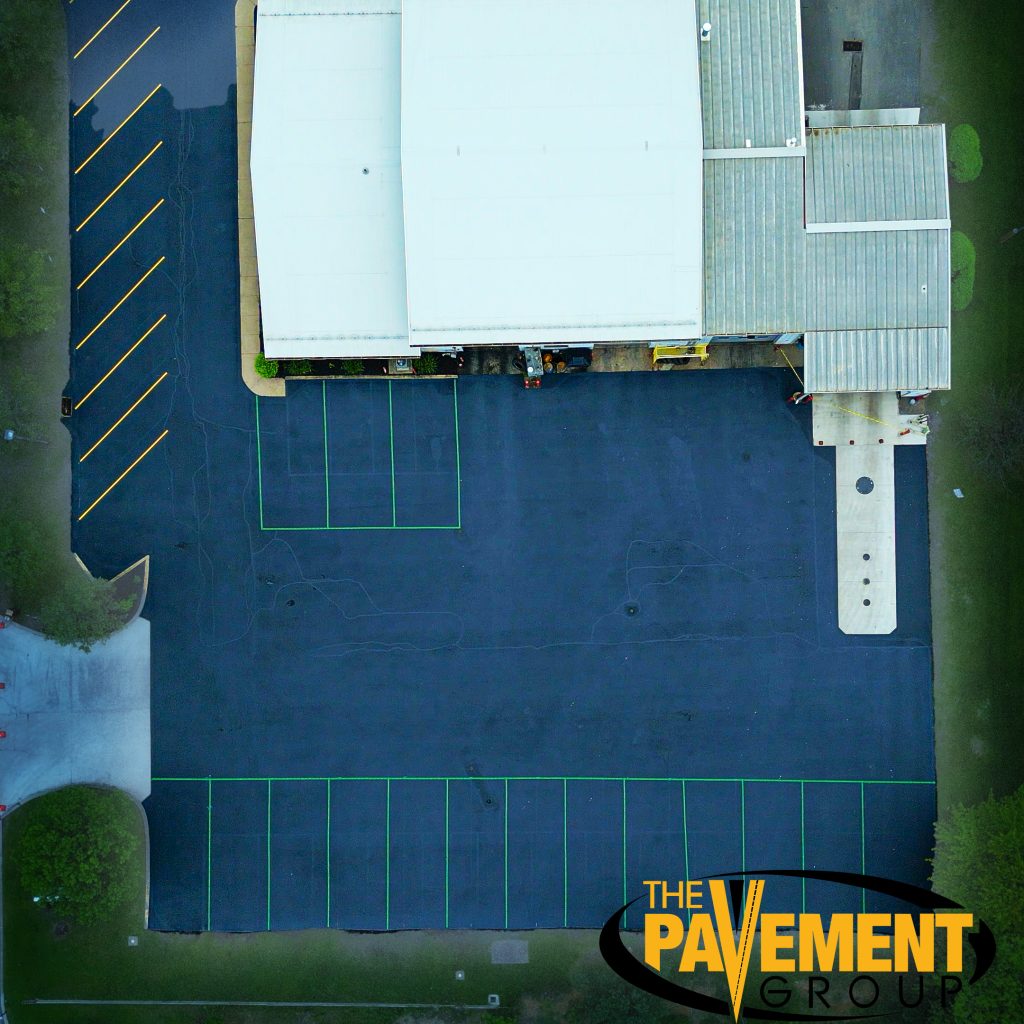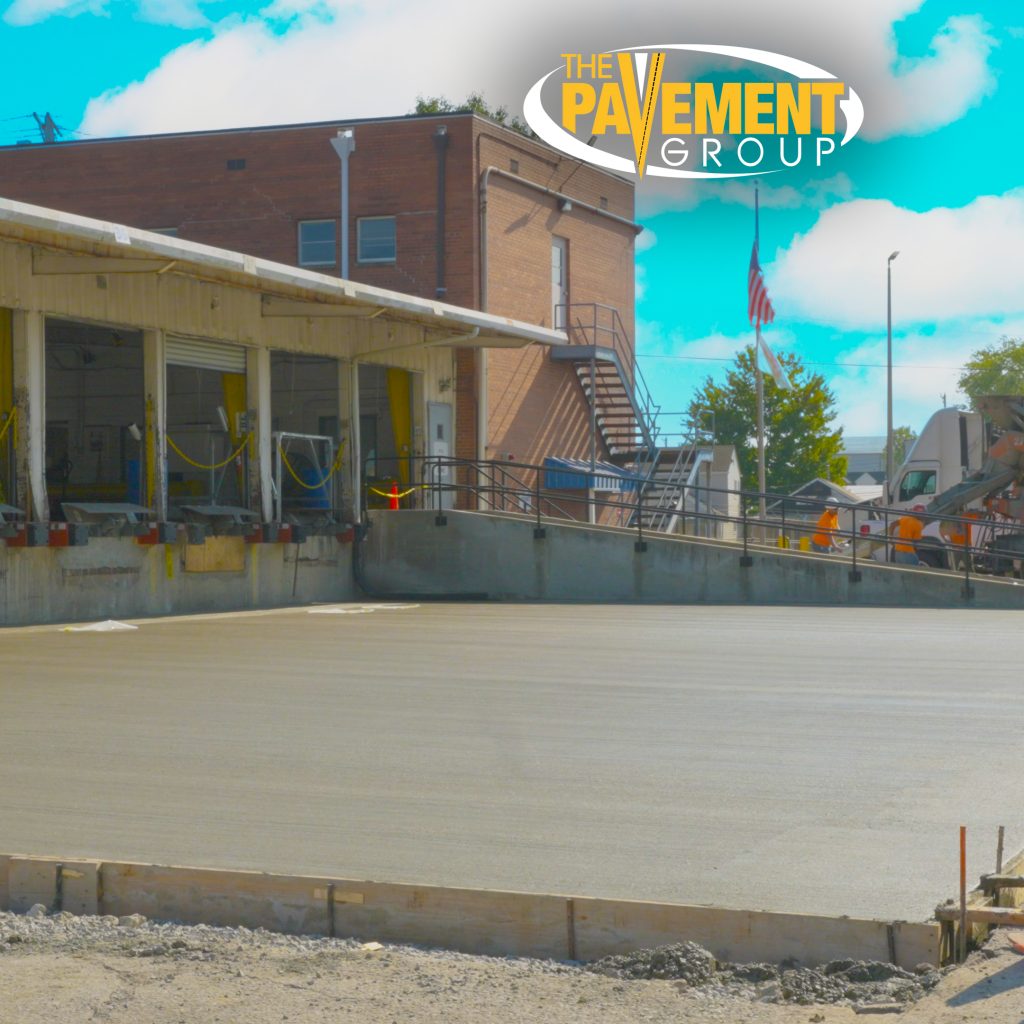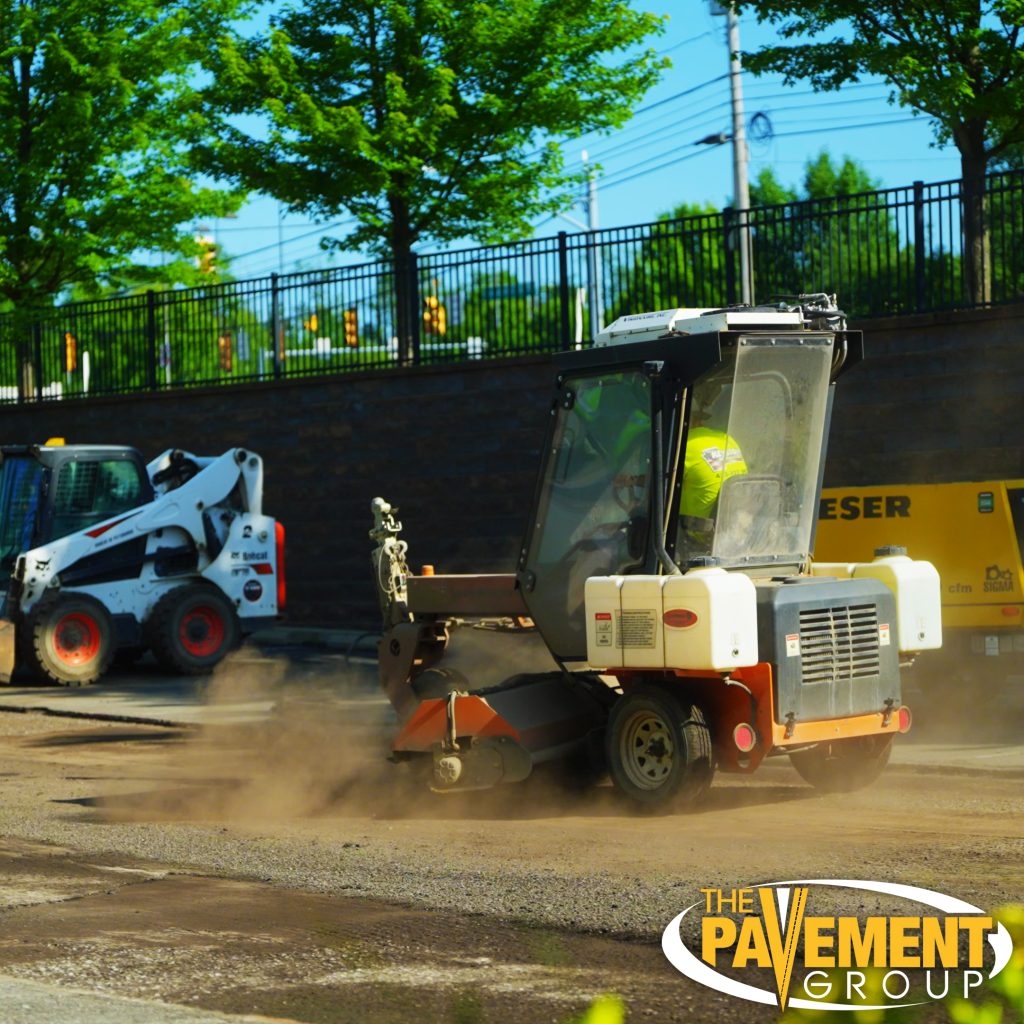When customers pull into a store in Pittsburgh or a shopping plaza in Nashville, their experience begins before they ever walk through the doors. A cracked, uneven, or faded parking lot sends the wrong signal about your business. On the other hand, a smooth, well-marked lot communicates professionalism, safety, and pride in your property. The truth is your parking lot is more than a surface. It’s a statement about your retail brand, and it’s often the first and last thing customers remember.
As experts in parking lot paving for retail businesses, we at The Pavement Group know what it takes to deliver results that balance durability, curb appeal, and compliance with local codes. This isn’t just about asphalt. It’s about creating an environment where customers feel welcome and safe while also giving property owners the peace of mind that their investment is built to last.
Why Parking Lot Paving Matters for Retail Businesses
A parking lot is often overlooked until problems appear. Retailers across areas like Cleveland, Atlanta, and Charlotte know that potholes, drainage issues, and poor striping can drive customers away. Beyond aesthetics, a poorly maintained lot can increase liability risks if customers trip, fall, or damage their vehicles.
Investing in professional paving brings benefits beyond looks. A quality parking lot improves traffic flow, maximizes space for vehicles, complies with ADA accessibility standards, and reduces long-term maintenance costs. Simply put, it’s both a customer experience upgrade and a smart financial decision.
Key Considerations Before Paving Your Retail Lot
Understanding Local Climate and Conditions
In colder cities like Minneapolis or Buffalo, freeze-thaw cycles wreak havoc on pavement, leading to cracks and potholes. In warmer southern areas such as Houston or Orlando, UV rays and heavy rainfall create their own challenges. The Pavement Group tailors every project based on local conditions to ensure maximum longevity.
Choosing the Right Materials
Not all asphalt mixes are created equal. High-traffic retail centers near highways may require stronger commercial-grade asphalt, while smaller local shops might benefit from cost-effective alternatives. We help retail businesses weigh durability against budget to find the perfect balance.
Drainage and Water Management
Water is pavement’s worst enemy. Without proper slope and drainage systems, puddles form, weaken the surface, and eventually create potholes. We carefully design drainage to keep lots safe and extend pavement life.
ADA Compliance and Accessibility
Every retail business must meet Americans with Disabilities Act (ADA) requirements. That means clear signage, properly marked accessible spaces, and compliant slopes for wheelchair access. Non-compliance isn’t just risky, it can result in costly fines.
Traffic Flow and Design Efficiency
Think about busy shopping days at a mall in Columbus or a grocery store in Dallas. Poor layout leads to congestion, frustrated customers, and even fender benders. Proper striping, entry and exit placement, and directional markings ensure smooth traffic flow.
Long-Term Maintenance Planning
A freshly paved lot looks fantastic on day one, but without a maintenance plan, it won’t last. Sealcoating, crack filling, and re-striping help protect your investment. The Pavement Group offers long-term maintenance partnerships to keep retail parking lots in peak condition.
The Pavement Group Difference
At The Pavement Group, we’re not just another paving company. We combine local knowledge with national expertise. Whether it’s managing snow-heavy winters in Chicago or scorching summers in Phoenix, our team knows how to engineer pavement that stands up to real-world conditions.
We also pride ourselves on communication. Retail owners and property managers have enough on their plates. We handle the heavy lifting, project planning, permits, scheduling, and compliance, so our clients can focus on running their businesses.
“When we decided to repave our strip mall parking lot in Charlotte, I was nervous about the disruption to our tenants and customers. The Pavement Group team kept everything on schedule and minimized downtime. They worked at night when possible, clearly communicated each step, and delivered a parking lot that completely transformed our property. Customers noticed immediately, and tenant satisfaction shot up. I couldn’t be happier with the investment.” – Retail Property Owner, Charlotte NC
Best Practices for Retail Parking Lot Paving
Schedule Work During Off-Hours
Retail businesses can’t afford to lose customers during construction. That’s why scheduling paving at night or during slow business periods is essential.
Plan for Seasonal Maintenance
In cities with heavy winters like Detroit or Milwaukee, sealing cracks before the first freeze can prevent costly spring repairs. In hot climates, sealcoating protects against sun damage.
Think Beyond the Asphalt
Signage, lighting, and landscaping all contribute to the safety and appearance of your lot. Customers feel more secure in a well-lit, organized environment.
Budget for the Long Haul
Cheap paving solutions often lead to early failure. Investing upfront in quality materials and proper construction saves money in the long run.
How The Pavement Group Supports Retailers
From local boutique owners in Cincinnati to nationwide retail chains, we help businesses create parking lots that truly serve their needs. Our team handles:
- Site evaluation and consultation
- Custom pavement design
- Permit and compliance management
- Construction with minimal disruption
- Ongoing maintenance programs
Your parking lot says more about your retail business than you think. Customers notice cracks, faded paint, and poor design. Don’t let your first impression be a negative one.
Call The Pavement Group today for a free consultation. Let’s build a parking lot that works as hard as your business does.
Frequently Asked Questions
1. How often should a retail parking lot be repaved?
Most retail parking lots last 15 to 20 years depending on traffic and climate. Regular maintenance like sealcoating and crack repair can extend lifespan. Repaving too late often costs more than proactive care.
2. What’s the best time of year for paving in colder states?
In northern regions like Pennsylvania or Michigan, late spring through early fall is best. Warm, dry weather allows asphalt to cure properly. Winter paving is rarely effective due to freeze-thaw cycles.
3. How much does parking lot paving cost for retail businesses?
Costs depend on size, materials, and local conditions. On average, retail paving ranges from $2 to $7 per square foot. A professional site evaluation provides the most accurate estimate.
4. How can retailers minimize disruption during paving projects?
The Pavement Group schedules work during off-hours or overnight when possible. Phased construction keeps parts of the lot open to customers. Clear signage and communication with tenants also help.
5. Why is drainage design important in parking lot paving?
Without proper drainage, water seeps into asphalt and causes cracks and potholes. Standing water also creates safety hazards for customers. Good drainage extends the life of your lot and reduces repair costs.
6. What are ADA requirements for retail parking lots?
Retail lots must include properly marked accessible spaces, compliant slopes, and clear signage. These features ensure accessibility and keep businesses compliant with federal law. Non-compliance risks fines and lawsuits.
7. How can maintenance save money on retail parking lots?
Regular sealcoating, crack filling, and striping prevent small problems from turning into major repairs. Investing in maintenance reduces the need for premature repaving. Think of it as protecting your investment.
8. Why is parking lot paving important for retail businesses?
Parking lot paving is critically important for retail businesses because it directly impacts customer experience, safety, and the overall business image.
9. What signs show that a retail parking lot needs attention?
Cracks, potholes, faded lines, and pooling water are red flags. Customer complaints or accidents are also indicators. Addressing issues early prevents higher costs down the road.
10. What maintenance is required for retail parking lots?
Maintenance includes sweeping and cleaning to remove debris and identify areas needing repair. Sealcoating every 2-3 years protects the asphalt from weather and prevents cracks.


